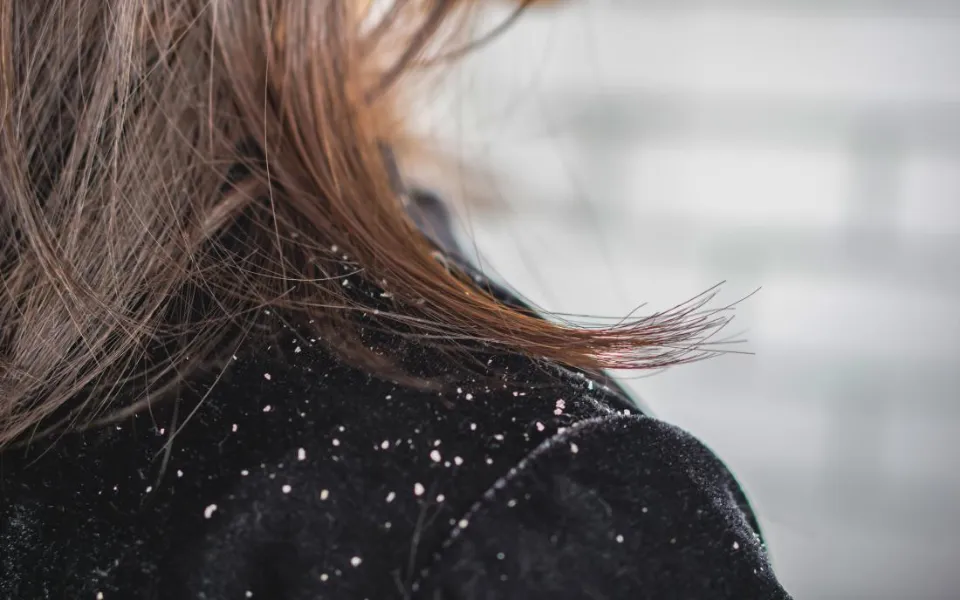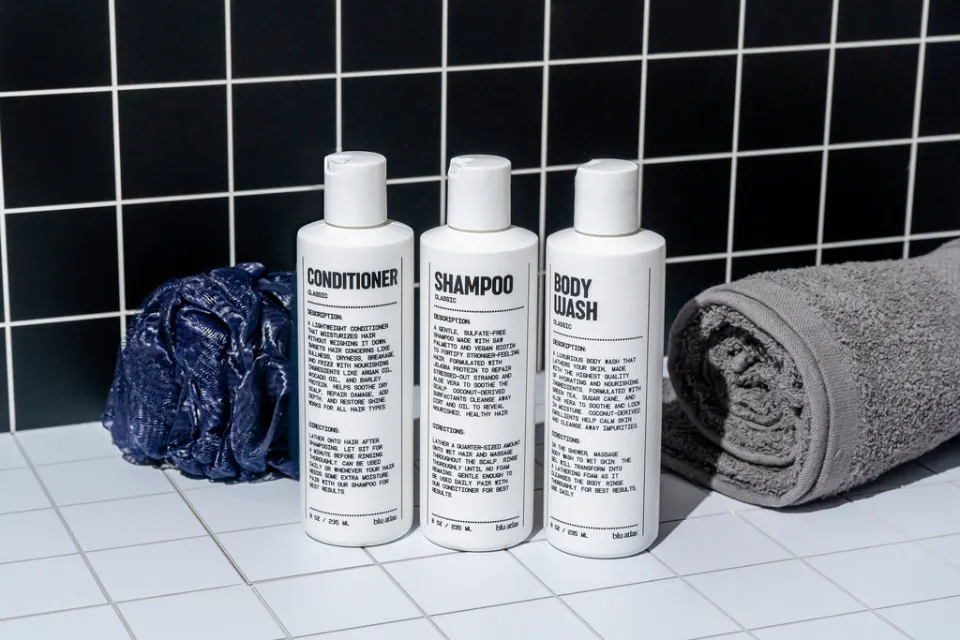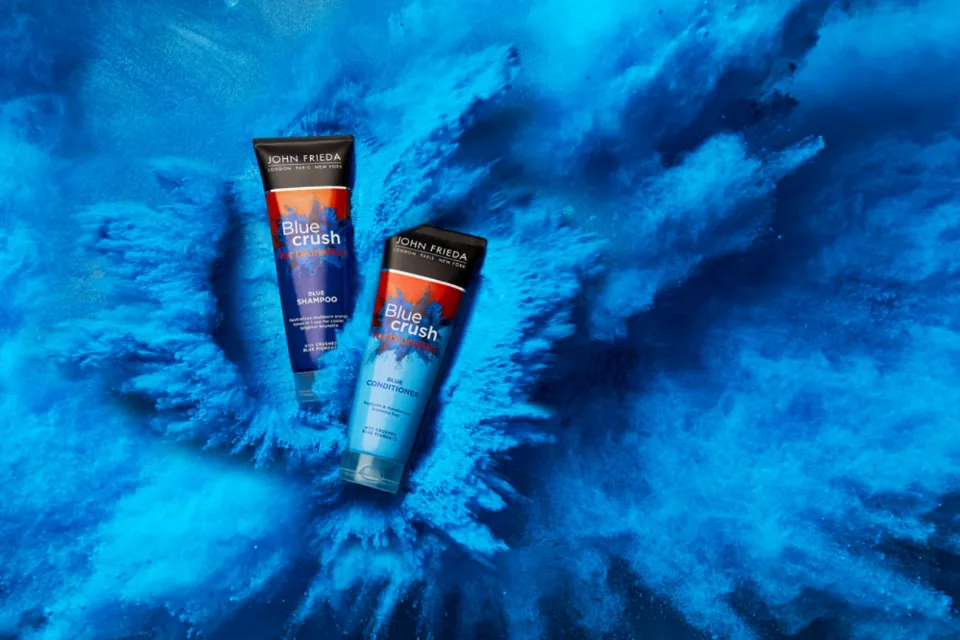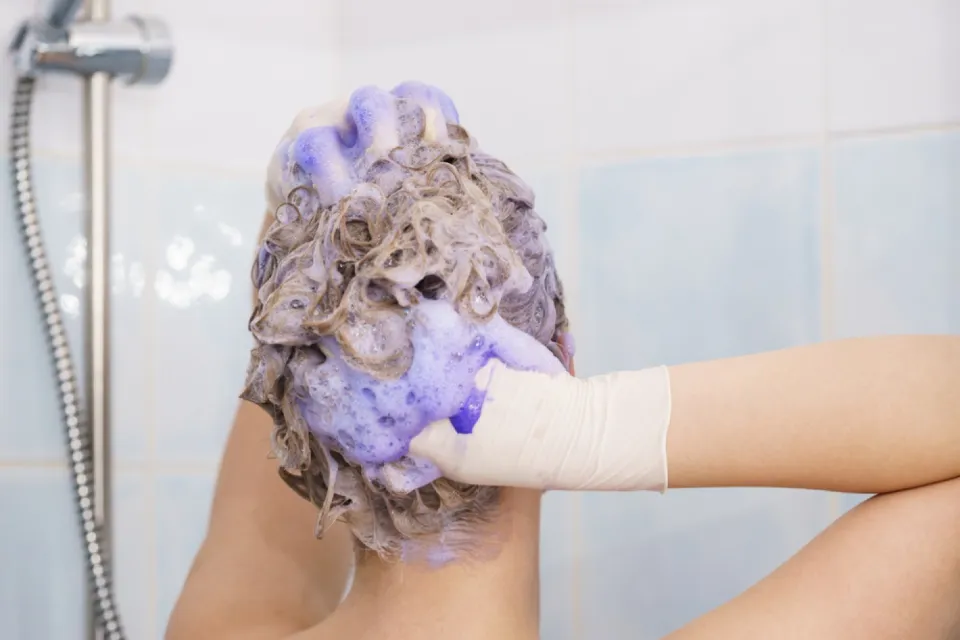Dandruff is very common. But does dandruff cause hair loss?
Dandruff itself does not cause hair loss. However, someone with severe dandruff may scratch their scalp so forcefully that they damage it.
This article examines the connection between dandruff and hair loss, prevention methods, and when to see a doctor.
Can Dandruff Cause Hair Loss?
There is no scientific proof that dandruff directly causes hair loss.
But dandruff-related constant scratching and itching can harm hair follicles and result in hair loss.
Additionally, dandruff can increase hair loss in those with androgenic alopecia, a condition that cause male and female pattern baldness.
Related Post:
- Does Cancer Cause Hair Loss?
- Does Adderall Cause Hair Loss?
- Can Hair Dye Cause Hair Loss?
- Does Creatine Cause Hair Loss?
- Does Vaping Cause Hair Loss?
- Does Amlodipine Cause Hair Loss?
- Does Dry Shampoo Cause Hair Loss?
- Does Hard Water Cause Hair Loss?
What Can Cause Both Dandruff and Hair Loss?
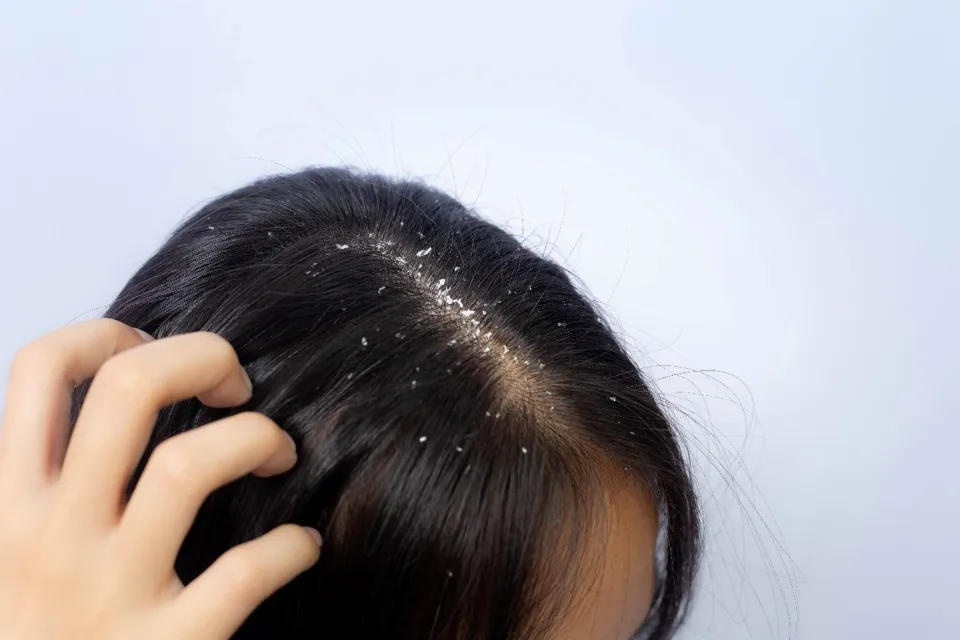
Any condition that causes skin flakiness or makes the outer layer of skin shed at an unusually fast rate may cause dandruff.
If a person does not seek treatment, these conditions may also harm the scalp and result in hair loss.
The following conditions can cause both dandruff and hair loss:
- Fungal infections: The scalp may experience severe itching as a result of ringworm, or tinea capitis. Some individuals also notice dry flakes or blisters, and the hair may clump together. Dandruff-like symptoms and hair loss are two other fungal infections that can occur. These conditions may benefit from antifungal treatments.
- Scalp psoriasis: Itchy, scaly patches can appear on the scalp as a result of the autoimmune condition psoriasis. It produces dandruff-like symptoms even though it is not dandruff. Where the scaly patches appear, there might be bald spots visible.
- Folliculitis decalvans: Hair follicles are destroyed by this uncommon inflammatory condition. Red, itchy patches that appear on the scalp are another side effect. The itching that this condition causes may lead a person to believe that they have dandruff.
- Lichen planopilaris: A dry, flaky rash appears on the scalp as a result of lichen planopilaris, which is more frequent in women. Additionally, it may lead to clumps of hair falling out. The condition cannot be treated with dandruff remedies, despite the fact that the symptoms are the same.
- Seborrheic dermatitis: Any area of the body can be affected by seborrheic dermatitis. It frequently affects the scalp, where it may result in greasy patches, a reddish or grayish scaly rash, and itching. Leaving it untreated could harm the hair follicles. Scratching the area vigorously could exacerbate the damage.
When a person scratches their scalp or twists their hair, any condition that makes the scalp itch or burn could result in hair loss.
Particularly young children may pull their hair out in response to scalp pain.
Hair Loss Prevention Tips
People with a history of dandruff may experience occasional flares of dandruff, even after successfully treating it.
The following are some strategies that can prevent dandruff-related hair loss:
- If your dandruff does not go away after using dandruff shampoo or another treatment, consult a dermatologist or other healthcare professional.
- Consult a doctor if the hair is coming out in clumps as this may indicate a problem with the scalp or hair.
- Regularly shampoo your hair. Dandruff risk could be increased by infrequent washing. African Americans should wash their hair once a week, while Caucasians and Asians should do so daily, according to the American Academy of Dermatology.
- Pay close attention to the dandruff shampoo bottle’s directions. For some shampoos to work, the scalp may need to be left on for a few minutes.
- Do not vigorously rub or scratch the scalp or twist or brush the hair. Ask a healthcare professional about anti-itching medication if the itching is excruciating.
- Stay away from very tight hairstyles. These could harm the hair follicles and scalp, slowing the growth of new hair. Additionally, tight hairstyles can cause hair breakage.
- Delaying dandruff treatment is not advised. When dandruff first appears, use a dandruff shampoo, and if it doesn’t go away in a week or two, consult a doctor.
Some people may find that their dandruff shampoo leaves the hair dull or dry. Hair that is dry and damaged can fall out and break more easily. After dandruff treatment, use a high-quality conditioner.
If the damage continues, try switching from dandruff shampoo to another shampoo periodically.
Related Reading: Does Coconut Oil Help Dandruff?
Summary: Does Dandruff Cause Hair Loss
Dandruff is very common, and most people are able to manage the symptoms with home treatment.
People with dandruff are unlikely to lose their hair. However, untreated dandruff may be a culprit in hair loss. Even when dandruff is not the primary cause, it may damage the scalp and accelerate hair loss due to other causes.
The signs of dandruff can be mistaken for many different illnesses. A dermatologist should be consulted if home remedies for dandruff do not work, the itching becomes intolerable, or the hair loss persists.
Read More:
FAQs
What Causes Dandruff?
It results from oil buildup or dry skin.
Does Dandruff Shampoo Cause Hair Loss?
Selenium sulfide and other ingredients found in anti-dandruff shampoos have been linked to increased hair loss.
How Many Times a Week Should I Wash My Hair for Dandruff?
Each individual requires a different amount of shampooing to manage their dandruff. Some people must shampoo twice per week, while others must do so more frequently—even daily.

